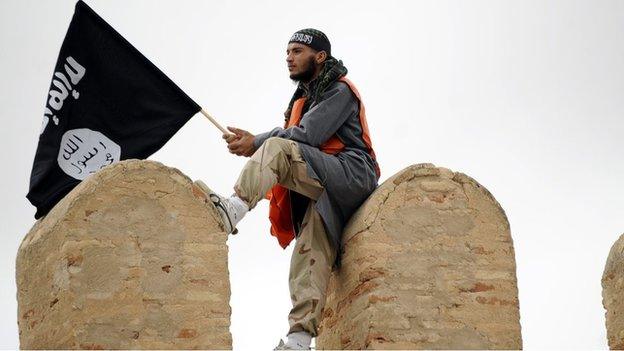Irish woman killed in Tunisia beach attack
- Published
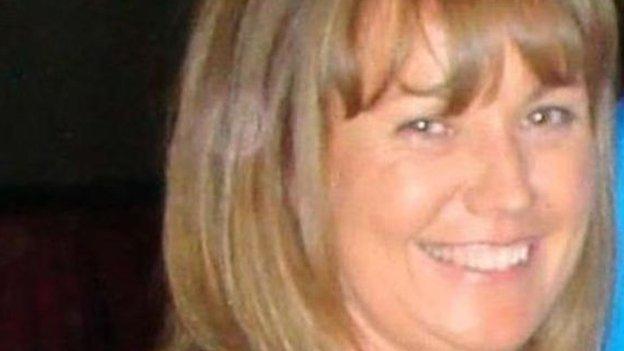
Lorna Carty, from Robinstown in County Meath, died in the attack
An Irish woman is among at least 38 people killed in Tunisia in an attack on a beach near two tourist hotels.
She has been named locally as Lorna Carty, from Robinstown in County Meath.
The attack happened in Sousse, a popular tourist resort, and most of those killed are believed to be British.
The Irish department of foreign affairs has said there are "grave" concerns for two other Irish people believed to have been caught up in the attack.
Islamic State extremists have said they were responsible.
So far, five Britons have been confirmed dead by the Foreign Office, and the Tunisian health ministry said eight Britons had been identified among the dead.
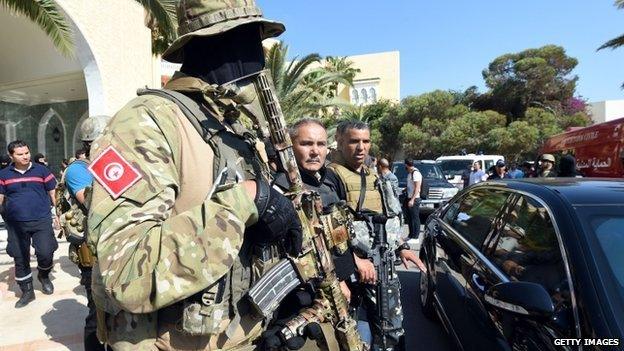
The Tunisian government has deployed security forces to tourist resorts
Tunisia's prime minister Habib Essid said the majority of the 38 people killed in the attack were British.
He has announced a clampdown on security and said army reservists would be deployed to archaeological sites and resorts.
David Cameron, the UK prime minister, said the country must be prepared for a high British death toll.
Thomson and First Choice have said their customers were among "a number of fatalities", and they have sent 10 planes to bring home 2,500 tourists.
On Friday, Charlie Flanagan, the Irish minister for foreign affairs, said his department was working to establish if any other Irish citizens had been killed or injured in "these brutal attacks".
He said they were advising people planning to travel to Tunisia to "exercise extreme caution".
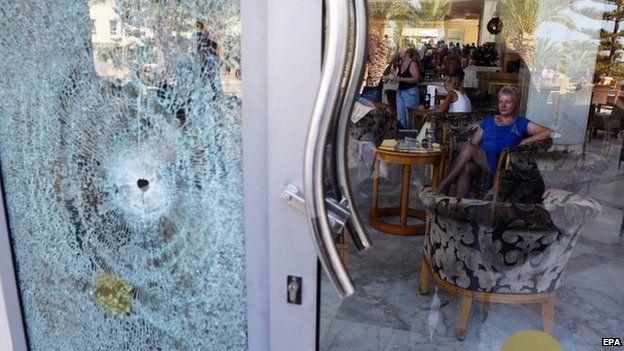
The attack on Friday happened at a beach near the Hotel Imperial Marhaba
"For those Irish citizens who are due to travel to Tunisia over the coming days and who now do not wish to travel, they should discuss their arrangements with the relevant travel companies," he said.
"Irish citizens in Tunisia should remain extremely vigilant and follow the instructions of the police, tour operators, and their hotel staff."
Irish embassy staff, including Irish Ambassador to Spain David Cooney, who is also accredited with Tunisia, arrived in Sousse on Friday night to provide consular assistance to citizens caught up in the attack.
Ms Carty, who was in her 50s, was on holiday with her husband who made contact with the Irish consular authorities.
Irish politician Ray Butler said he had spoken to her husband.
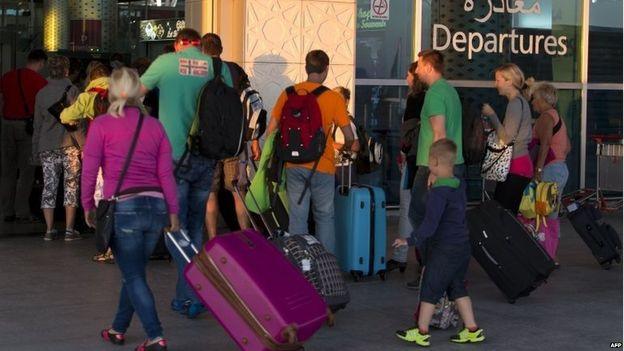
Holiday companies have arranged extra flights to bring tourists home from Tunisia
"It was one of the hardest phone calls I've ever made and it's so sad to hear what happened, for this lady to be enjoying her holidays out on the beach and to lose her life," the County Meath representative told Irish broadcaster RTÉ.
"I've been told that one of their family relations had given them the holiday as a gift, because her husband had undergone heart surgery, so they could go and enjoy themselves."
Tunisia has been on high alert since March when militants killed 22 people, mainly foreign tourists, in an attack on a museum in the capital Tunis.
The attack on Friday happened at a beach near the Hotel Imperial Marhaba, officials said.
Tunisia is a popular destination for Irish tourists.
Dublin woman Elizabeth O'Brien, who was on holiday with her two sons in Sousse, told RTÉ how they had to run for their lives.
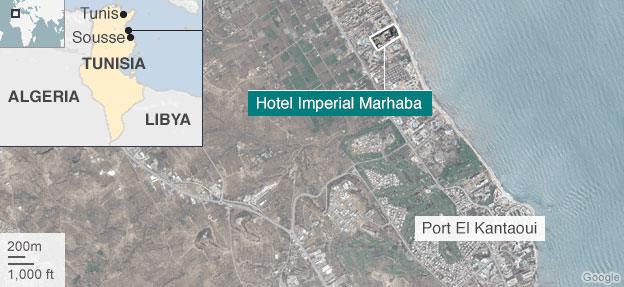
"I saw a (hot air) balloon collapse down, then rapid firing, then I saw two of the people who were going to go up in the balloon start to run towards me - because I thought it was fireworks," she said.
"I thought 'oh my God, it sounds like gunfire', so I just ran to the sea to my children and grabbed our things and as I was running towards the hotel, the waiters and the security on the beach started saying 'run, run run!' and we just ran to our room."
Travel blogger Johnny Ward, from Kilkeel in County Down, is in the Gammarth resort, close to the capital Tunis, with his mother.
Gammarth is about 100km north of where the attack happened, and Mr Ward said there was "outrage from the locals here just as much as there is from the tourists".
Security appeared to have been tightened in the country and the atmosphere "feels quite on-edge", he added.
"That adds to the whole nervousness, because the fact there is a police presence would suggest everything is not right."
- Published27 June 2015
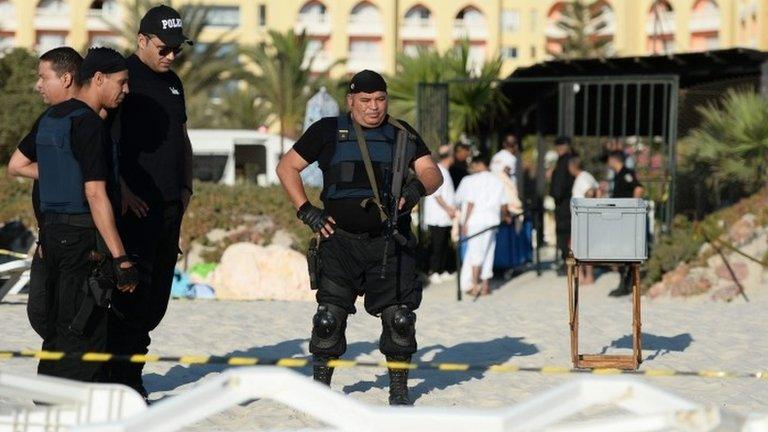
- Published27 June 2015
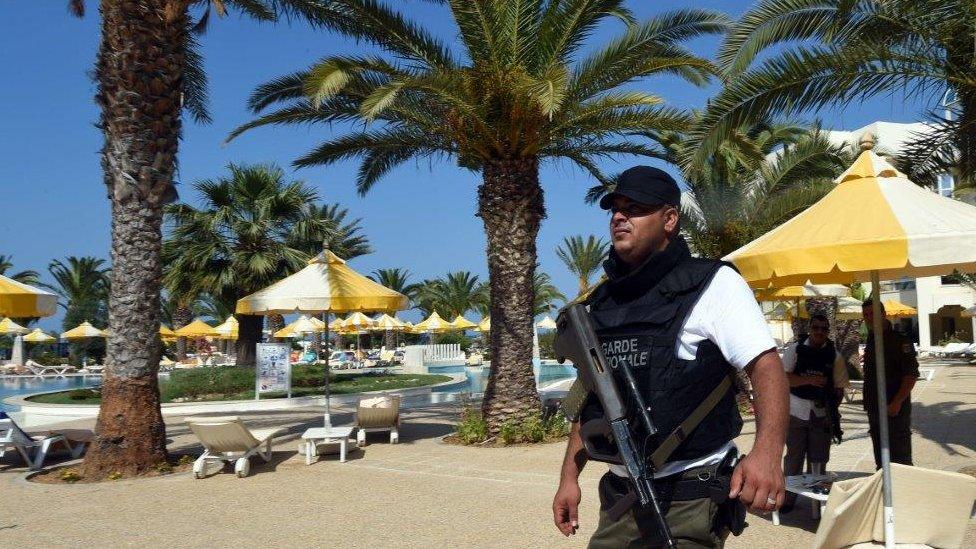
- Published26 June 2015
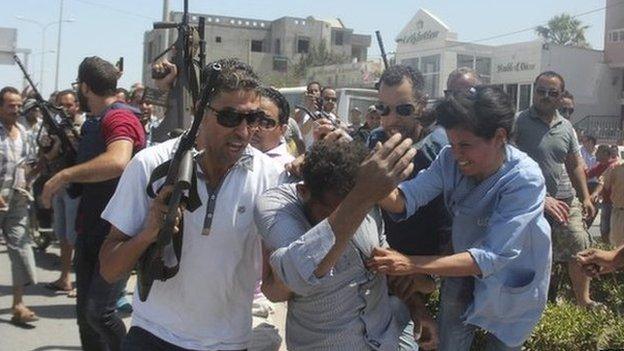
- Published19 March 2015
